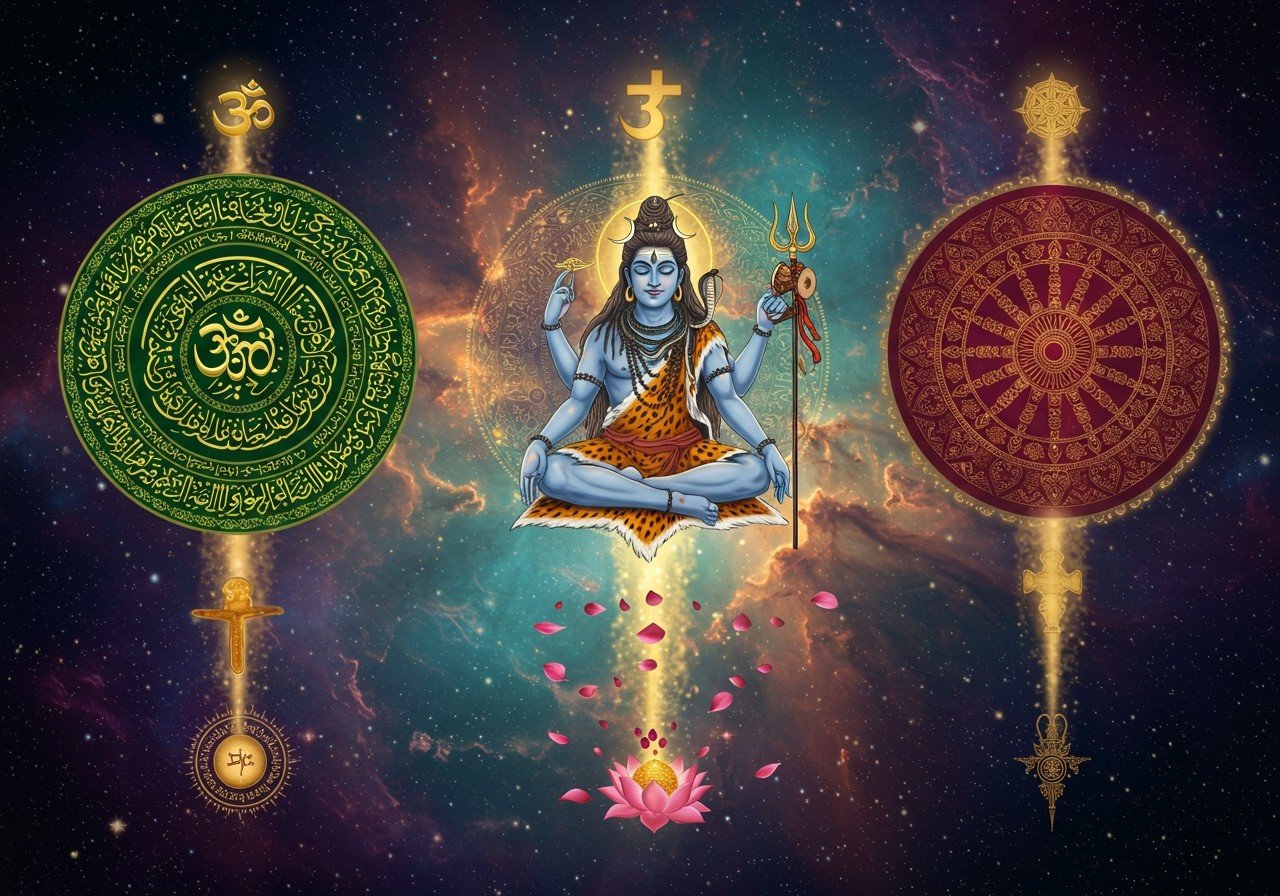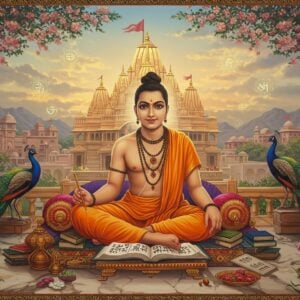
In Indian religions and philosophies, the concept of Ishvara represents a supreme being or god. This idea holds various meanings across different traditions, deeply influencing cultural and spiritual practices. Exploring Ishvara provides insights into Hinduism, Buddhism, and other philosophies, offering a rich understanding of its role in shaping beliefs and rituals.
Ishvara in Hinduism
The Role of Ishvara
In Hinduism, Ishvara is often seen as a personal god, representing the creator, preserver, and destroyer of the universe. Different schools of thought within Hinduism, such as Vedanta, describe Ishvara as both immanent (present everywhere) and transcendent (beyond the material world). The Bhagavad Gita, a revered Hindu scripture, presents Krishna as an incarnation of Ishvara, highlighting the concept’s significance.
-
Personalization of Ishvara: Hinduism is rich with deities, and many of these are seen as different aspects or manifestations of Ishvara. This allows for a personalized connection with the divine.
This personalization is a key aspect of Hindu worship, allowing devotees to connect with Ishvara in a way that resonates with them.
-
Bhakti (Devotion): Bhakti yoga, the path of devotion, is central to Hindu practice. Through personal worship, rituals, and chanting, devotees cultivate a deep connection with Ishvara.
Bhakti emphasizes love and surrender to the divine, fostering a close relationship between the devotee and Ishvara.
Philosophical discussions within Hinduism often explore the relationship between Ishvara and Brahman, the ultimate reality in Advaita Vedanta. Hindu festivals and cultural practices frequently celebrate Ishvara, enriching the traditions and deepening the connection with the divine. Explore a wide range of products for Hindu rituals and worship at poojn.in.
Ishvara in Buddhism
Interpretation in Buddhism
Buddhism generally doesn’t embrace the concept of a creator god like Ishvara in the same way as Hinduism. The emphasis is on personal enlightenment and the path to liberation from suffering. However, certain branches of Mahayana Buddhism include celestial bodhisattvas, enlightened beings who postpone their own nirvana to help others, and these figures share some similarities with the concept of Ishvara. This presents an interesting contrast to Hindu views.
-
Buddhist Cosmology: Buddhism offers a distinct cosmological perspective compared to Hinduism, with its own unique understanding of the universe and the nature of reality.
This perspective shapes the Buddhist understanding of the divine and the path to enlightenment.
-
Interactions with Hinduism: Historically, Buddhism and Hinduism have interacted and influenced each other. These interactions have impacted the understanding of divine concepts in both traditions.
Traces of these interactions can be seen in the development of certain Buddhist ideas.
Buddhist practices primarily focus on self-realization and understanding the ultimate nature of reality, sometimes blending with Hindu beliefs in syncretic practices.
Comparative Analysis of Ishvara Across Philosophies
Study Across Philosophies
Examining the concept of Ishvara across various Indian philosophies provides a broader understanding of its diverse interpretations. Jainism, for example, rejects the idea of a creator god. The Charvaka school of thought takes a skeptical approach to metaphysical concepts. Sikhism, while monotheistic, reveres Waheguru, a concept that parallels the idea of Ishvara. These diverse perspectives offer a rich tapestry of thought.
-
Ethical and Moral Frameworks: The interpretations of Ishvara significantly influence the ethical and moral frameworks within different philosophical systems.
These frameworks guide the behavior and spiritual development of followers.
-
Sociocultural Impact: The diverse views on Ishvara shape spiritual and cultural practices across India, impacting various aspects of life.
These impacts can be seen in rituals, festivals, and social structures.
Modern philosophical and spiritual movements continue to redefine and reinterpret Ishvara, reflecting its evolving role in contemporary contexts. Find resources for various spiritual practices at poojn.in.
Cultural and Ritualistic Significance of Ishvara
Cultural Importance
Ishvara holds a vital place in Indian society, deeply intertwined with daily rituals, temple worship, and cultural expressions. Festivals dedicated to Ishvara vary across different regions, demonstrating its cultural depth and significance.
-
Art, Literature, and Music: Indian art, literature, and music draw profound inspiration from Ishvara, expressing devotion, philosophical ideas, and cultural narratives.
Many iconic works of art and literature depict stories and teachings related to Ishvara.
-
Spiritual Practices: Various spiritual practices, including meditation and yoga, often incorporate the concept of Ishvara as a focal point for concentration and devotion.
This focus can enhance spiritual awareness and connection with the divine.
For Indian diaspora communities around the world, Ishvara serves as a crucial link to their cultural and spiritual heritage. Pooja items and spiritual resources can help maintain this connection. Visit poojn.in to explore a wide selection.
Pooja Items for Connecting with Ishvara on Poojn.in
Poojn.in offers a wide variety of authentic puja items and religious supplies to support your connection with Ishvara. Whether you are a devotee of Vishnu, Krishna, Brahma, or other deities, you can find high-quality products to enhance your spiritual practice:
- Idols: Brass, copper, and other sacred materials. Laddoo Gopal Idols are a popular choice.
- Puja Sets: Complete sets for specific deity worship.
- Malas and Beads: Tulsi, Rudraksha, and other sacred woods.
- Yantras and Shaligrams: For meditation and spiritual practices.
- Incense and Agarbatti: Sandalwood and other fragrances.
- Vastras and Decorations: Silk, cotton, and other materials for deity adornment.
All products are verified for authenticity and carefully packaged. Poojn.in also offers expert guidance on puja rituals and spiritual practices. Browse our extensive collection today!
Embracing the Legacy of Ishvara
The concept of Ishvara transcends mere religious belief; it represents a profound spiritual heritage that has shaped Indian culture for centuries. Ishvara is not a static concept but a dynamic force that continues to evolve and inspire. As we navigate the complexities of the modern world, the legacy of Ishvara offers guidance, connection, and a sense of belonging.


